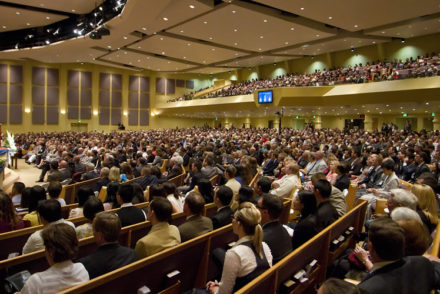This year is the 500th anniversary of the beginning of the Protestant Reformation. In honor of this anniversary I am dedicating five blogs from myself to summarizing the five central theological tenets of the Reformation. This is the fourth of those five. (Here are links to the first, second, and third posts.)
+++++++
No one likes to go to the dentist. The sights, the sounds, the smells, the pain. Everything conspires to turn the experience into a micro-trauma. Then, add to all that, the dentist’s insistence to attempt to carry on a prolonged conversation while a host of instruments are added to and taken from your mouth with latex-covered fingers. Overall, for most of us our semi-annual trip to the dentist is unpleasant at best.
A recent encounter with a very outspoken dentist served to remind me of the importance of the Reformation doctrine of sola Christus – Christ alone. When he found out my profession – church history professor – and my profession of faith – Protestantism in the Baptist tradition – he was very intrigued and then became very agitated. When he found out what I believed between rinses, he wanted to argue over the damage done by the Reformation and Luther’s insistence on sola Scriptura. In the end, however, he took the greatest offense at the implications of that doctrine, specifically sola Christus and its impact on the sacramental system of the Roman Catholic Church.
It’s not that Catholics then or now deny the Person or the work of Christ. In fact, they will argue that those things are foundational to all their theology. The argument would be honest and impassioned. And, as the Reformers would argue, their argument would be right insofar as it goes. The work of Christ and the merits he has garnered for that perfect work stand behind their doctrine of salvation. Their argument falls short of the Reformation solas in that they add, directly or indirectly, the works of the saints and the treasury of merit to their fuller doctrine of salvation.
Luther and those who followed him rightly diagnosed these additions to the work of Christ. The rightly understood the implications involved. If I or Mary or St. Thomas or St. Anthony or any other saint must add something to my salvation by way of action, merit or penance, we are saying that Christ’s completed work on the cross was anything but complete. It is a work in progress. It is a work that needs man’s help to complete its mission and purpose.
The Reformers, however, argued that Christ’s work alone is sufficient for salvation. Our imperfect efforts, or those of a thousand deceased saints, can add nothing his perfect work. They, and I, would argue Scripture proves the same thing. Consider these few examples:
Christ alone stands center stage in the Christian faith not the saints, living or dead – Acts 16:31.
Christ alone serves as the Mediator between a righteous God and fallen man – 1 Timothy 2:5.
Christ alone satisfies man’s spiritual debt – Mark 10:45.
Christ alone takes God’s wrath for sinners – Hebrews 2:17.
Christ alone stands in our stead before an angry God – Isaiah 53:6-7.
In the end, the doctrine of justification, Luther argued, is the hinge on which all of Christianity turns. Their conviction, as the five solas reveal, places the finished work of Christ at the center of our faith. Christ alone is all we need. Christ alone saves. Christ alone is our battle cry. Christ alone is our only hope for salvation. If it’s not Christ alone, we stand alone in our hope for salvation. That’s no hope at all.





